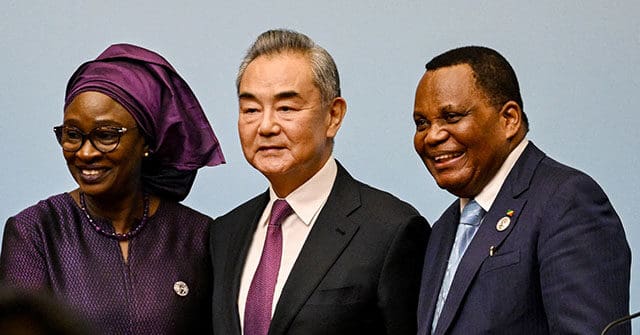Beijing’s three-day Forum on China-Africa Cooperation (FOCAC) concluded on Friday with more pledges of funding for Africa, even though China’s sputtering economy may be hard-pressed to meet those commitments.
The South China Morning Post (SCMP) counted $50.6 billion in Chinese loans, aid programs, and corporate investments for Africa over the next three years that were announced during the forum.
Support authors and subscribe to content
This is premium stuff. Subscribe to read the entire article.
Login if you have purchased
